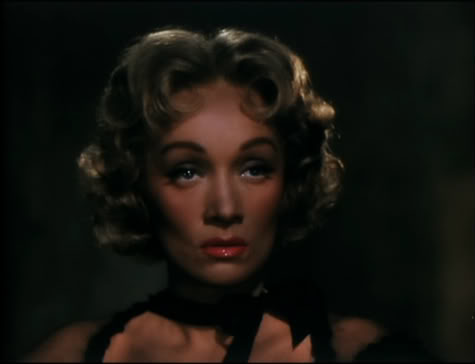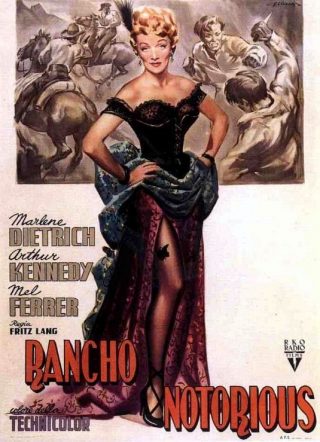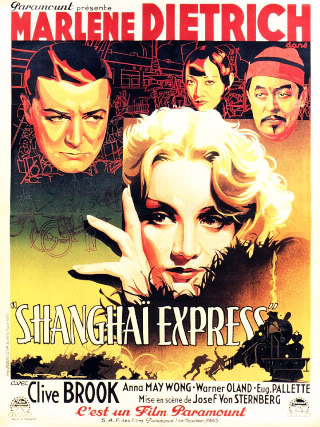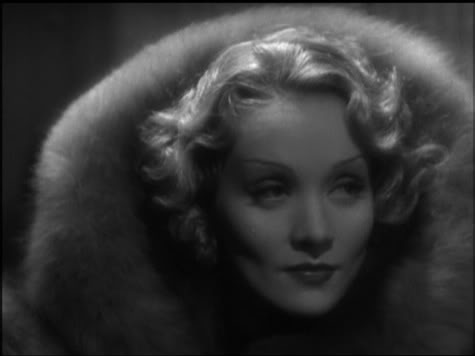Hate, murder and revenge…
Those three powerful words succinctly describe what Fritz Lang’s Rancho Notorious (1952) is all about. It’s a curiosity – a western that seems to take pride in overturning genre conventions and defying viewer expectations. It’s also a highly stylized melodrama, bordering on parody in fact, a kind of baroque noir picture dressed up in western garb. Over the years I’ve seen the movie come in for some criticism, largely based on the atmosphere of artificiality or cheapness. Still, that’s a big part of what attracts me to it; the anti-realism of the film gives it a theatrical feel, and heightens the sense of watching a morality piece played out on an elaborate stage.
The plot is a fairly straightforward revenge yarn although, perhaps unsurprisingly with Lang occupying the director’s chair, it’s given a twist to keep it fresh. Vern Haskell (Arthur Kennedy) is an ordinary cowboy who sees his world turned upside down when a couple of outlaws ride into town, raid the assayer’s office where his fiancée works, and rape and murder the girl in the process. Inevitably, Vern wants justice and sets out with the hastily assembled posse to track down the criminals. However, the traumatic event has caused cracks to appear in the apparently mild exterior of this man, and an obsessive streak begins to emerge when the posse refuses to continue what looks like a fruitless pursuit. Having scornfully dismissed his former friends, Vern sets out alone in search of a reckoning. The first third of the film is thus played out in typically noir fashion, as we follow Vern’s painstaking combing of the country for a clue that will lead him to those responsible for the death of his girl. His progress is charted through interviews and flashbacks, as he slowly pieces together the clues and draws ever closer to his quarry. The final piece of the puzzle, or at least the piece that will bring him within striking distance of the murderer, comes when he contrives to have himself thrown in prison with notorious outlaw Frenchy Fairmont (Mel Ferrer). Along the way, Vern has learned that the key to the mystery lies with a woman by the name of Altar Keane (Marlene Dietrich) and a place called Chuck-A-Luck. His acquaintance with Frenchy, and his part in making good their jail break, ensures Vern’s smooth entry to the semi-mythical Chuck-A-Luck. This is a ranch, run by Altar, serving as a front for an outlaw refuge where no questions are asked so long as the proprietress is paid 10% of any and all takings. Vern is now in a position to work through a shortlist of possible candidates who may be the murderer. Yet, there is a price to be paid; his initial quest for justice has evolved into a thirst for vengeance and has transformed his character in the process. By the end, the hero has become as violent, manipulative and ruthless as the man he set out to find.

Rancho Notorious was the last of three westerns that Fritz Lang made, and it’s arguably his most interesting. The idea of the ordinary guy overtaken by events and thrown into a world of violence and deceit that’s alien to him is one that can be found throughout Lang’s work. The central theme of how a desire for revenge can twist a formerly decent man and leave him on a par with the criminals he’s pursuing would be further, and more competently, explored when the director returned to it in The Big Heat a year later. Although all of Lang’s westerns contain elements of his trademark noir sensibilities, Rancho Notorious displays them most prominently. I’ve mentioned the use of the flashback in the first half hour of the picture, but the mood and photography all the way through help to cement the fatalistic and pessimistic sense that pervades the movie. One could, I suppose, complain about the overuse of painted backdrops and the ever-present ballad that serves as a stylized voiceover narration for the unfolding plot, but I prefer to see these as tools that Lang used to create his own vision of a dark frontier. The film is less concerned with showing any accurate portrayal of the west than it is with detailing the downward spiral of an essentially good man into a world of corruption and violence.
Marlene Dietrich had already played the archetypical bad saloon girl over a decade before in Destry Rides Again, and her role as Altar Keane comes off as an older but only slightly wiser version of that same character; between these two films she created the template against which all such portrayals would subsequently be judged. Dietrich apparently disliked the film and the reasons for that are detailed in a fine post by Toby at 50 Westerns here. Despite all the discord on the set, she turns in a fine performance as a woman who’s gained a lot of experience but little personal fulfillment. She may well rule the roost at Chuck-A-Luck, but there’s a weary, resigned air about her that indicates happiness has passed her by. Mel Ferrer was an actor I’m generally not that fond of, but I thought the mournful passivity that he possessed was used to good effect here, a nice counterbalance to Arthur Kennedy’s twitchiness. Kennedy wasn’t really a leading man at any point in his career – his best and most memorable work was usually done when he was playing the villainous supporting role – yet that actually makes his casting here more successful. His nondescript, everyman quality is suited to the role of Vern Haskell and he really taps into the obsessive, driven nature of his character as the movie progresses. As an aside, I’ve often seen it stated that Vern falls for Altar after his arrival at Chuck-A-Luck, but I’ve never thought that was the case at all. To me, he’s become so consumed by hate at this stage that he’s incapable of loving anyone and is merely feigning attraction to get nearer to his ultimate goal.
For a long time I had the UK DVD release of Rancho Notorious from Optimum, and it was never particularly satisfying – soft and with washed out colours. The movie then came out in the US as part of the Warner Archive series, sporting an altogether stronger transfer. Since then, I picked up the French release by Films Sans Frontieres which I’m very happy with. It’s a significant improvement on my old Optimum disc and, judging from screencaps, looks very close to the quality of the Archive disc. It’s sharper and more colourful but there’s still some print damage on view. Forced subtitles on the English track are always a concern with French releases but this disc allows them to be disabled via the setup menu. Rancho Notorious isn’t one of Fritz Lang’s better regarded films and tends to be criticised quite a lot. I think this is a little unfair; while it may not be his best work it’s still very entertaining. Much of the problem may come down to a question of expectations, with the film suffering from viewers approaching it with the thought that they will be getting a standard oater. If you accept that you’re in for a piece of high melodrama in a stylized western setting then the movie is unlikely to disappoint.


